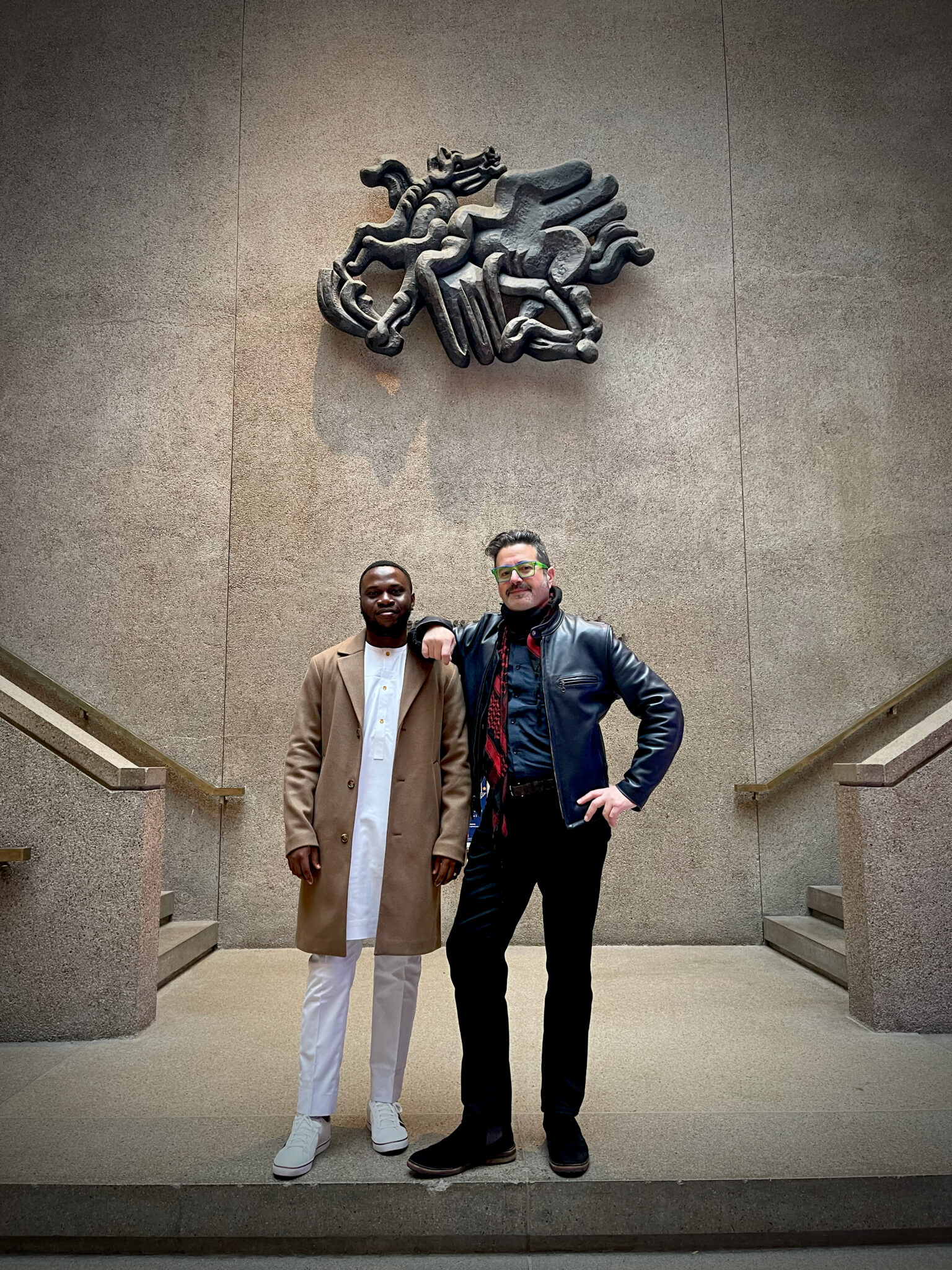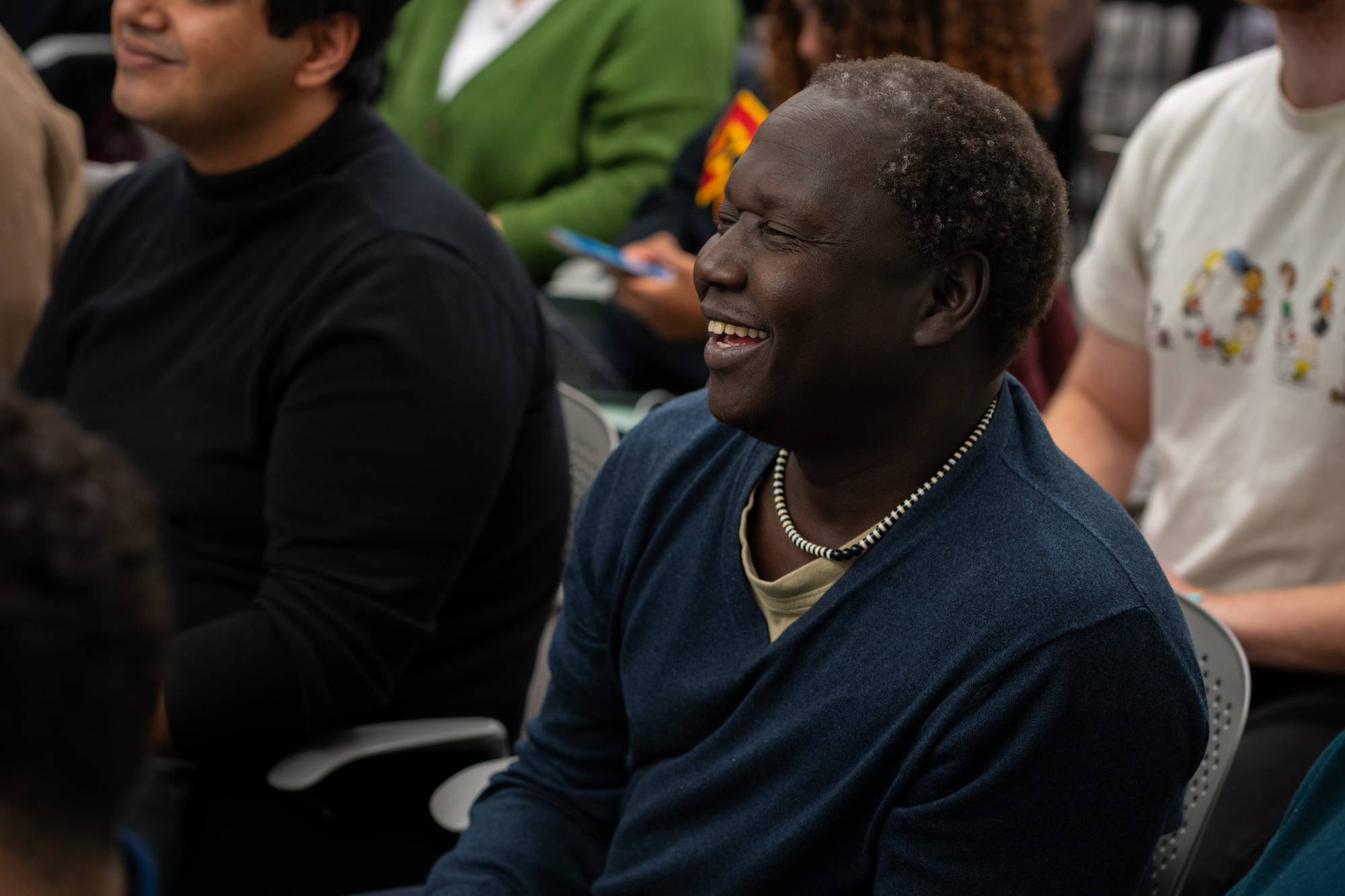Newhouse Hosts Journalist David Adeleke in Talk Discussing Misrepresentations of Africa in Western Media
Exploring the intricate relationship between African countries and Western media perceptions of those countries and their culture was the focus of “Africa and the Western Media’s Blind Spots,” a thought-provoking event held in November at the Newhouse School. David Adeleke, a Nigerian journalist and Africa editor at Rest of World, was the featured speaker.

The event was organized by Ken Harper, a visual communications associate professor and director of the Newhouse School’s Center for Global Engagement.
“There are so many false or incomplete narratives about Africa. This event was intended to widen and deepen understanding and provide content,” Harper said.
Speaking in Newhouse’s I3 Center, Adeleke engaged in a frank and interactive dialogue with students where he highlighted the need to reevaluate media portrayals of Africa beyond stereotypical reporting—that focuses heavily on challenges or portrays an overly optimistic view and glosses over complex realities—and to showcase the technological strides and cultural vibrancy in the continent that is often overlooked, many times due to distance.
“When Western publications and international publications want to write a story about other countries, they often do it remotely. So they don’t have local context, they don’t have cultural context,” he said.

As a continent of 54 countries and thousands of languages, environments and cultures, Africa is diverse, complex and on the forefront of innovation, Adeleke said.
“There is an innovative spirit alive across Africa that deserves more balanced coverage, I think there is a lot of misrepresentation in many of the stories about Africa. There is a very high cost that comes from the absence of context in this coverage,” he remarked.
“Western media coverage of Africa is almost always negative. There is an awful emphasis on the extreme and the policy failures. So whenever there are positive stories told about Africa, they come across as patronizing, with tropes like ‘Africa rising.’”
In his talk, he urged the audience to seek a fuller understanding of those innovations, from mobile money technology in Kenya to the role of WhatsApp in fighting food inflation in Nigeria, to the digitization of historical Nigerian newspapers.
Adeleke works to promote that innovation with Rest of World, a publication dedicated to exploring the impact of technology beyond the Western sphere. With a focus on innovation in markets such as Africa, Latin America, China, South Asia and Southeast Asia, Rest of World sheds light on stories typically overshadowed by Western-centric narratives.
“Unlike many Western outlets reporting remotely, we prioritize on-the-ground coverage of these countries,” he said


Adeleke’s discussion, which called for stepping outside of simplistic narratives to gain a more accurate perspective of the diverse realities shaping the African continent, resonated with Madyson Diaz, a Newhouse sophomore studying broadcast and digital journalism.
“A lot of the views that he had were incredibly interesting,” she said, noting Adeleke’s passion for spreading information and preventing misinformation as an inspiration to learn more.
“He talked a lot about nuance – about things not being simply black or white. I often find my own beliefs residing in that same gray area, rather than at the extremes. I very much related to that more nuanced thinking, so his words were really memorable for me.”
In his closing remarks, Adeleke called for cooperation and work between Western and African journalists and emphasized avoiding monolithic portrayals of African culture, especially in representations of social and political issues that lack distinction.
“We need more collaboration between Western media and local journalists who can provide nuanced perspectives; when you pay attention to those things, when you just step outside your bubble, I think it just makes your life much richer, makes life more interesting,” he said.
Allen Huang is a graduate student in the media studies program at the Newhouse School.